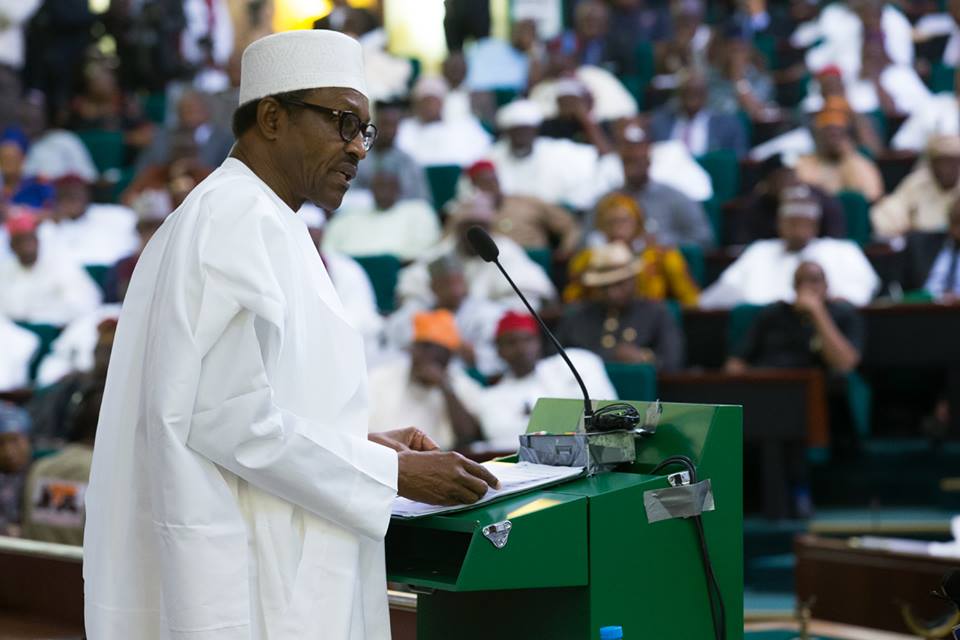Facts emerging from the National Assembly are indicative that the legislators may veto the powers of President Muhammadu Buhari and pass the 2016 budget into law against the amendment being sought by President Buhari.
The lawmakers, Vanguard reports, have said that the budget as sent to the President cannot be rewritten but needed be signed law as it has been presented by the National Assembly.
They argued that the only option left for the president is to sign what was passed to him and forward an amendment bill on the 2016 appropriation bill to take of his personal interests.
President Buhari’s grouse with the 2016 budget is the exclusion of a number of critical projects, especially the Lagos-Calabar rail line which were removed by the appropriation committees of the Senate and House of Representatives.
Buhari has mounted pressures on the lawmakers to include the critical projects into the budget before signing it into law but the law makers are thinking otherwise, hence the standoff between the presidency and the senators.
But the legislators have said that the constitution of the country did not provide opportunity for rewriting a budget that has already been passed to the president for assent.
This is further worsened by the fact that the provision of the constitution gives the president 30 days to sign the budget forwarded to him and the 30 days expired at the weekend.
Vanguard reports that there was controversy among constitutional experts in the National Assembly at the weekend as to whether the President is expected to re-present what was passed or present a fresh bill to satisfy his interest on the issues at hand.
A meeting between the Presidency and the National Assembly leadership, expected to hold at the weekend to address the issues of concern, did not hold, it was learnt.
The constitution provides that if the president fails to sign the budget into law within 30 days, the two houses will sit in a joint session and if two third majority of the lawmakers sign the budget, it becomes law, hence the assent of the president is no more required to pass the budget into law.
The National Assembly is standing on this provision of the constitution, consequently the pressure to include the sections needed by the president may no longer hold and as such the law makers may veto the powers of the president based on this section of the constitution.
The National Assembly leaders were expected to, at the meeting, convey the point to the President that the only option opened to him was to sign the budget and forward an amendment bill.
“There is no provision in the constitution that would allow us to incorporate those projects again,” a very senior legislator told Vanguard. It was also learned that calls on the President to send a supplementary budget would also not be tenable.
“A supplementary budget is only proposed when there is a shortfall in revenue for a project, but what is workable in this case is for the President to sign the budget as sent to him and then send an amendment bill to the 2016 Appropriation Bill to address areas of concern to him,” a legislator familiar with the process reported.







